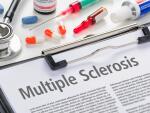Fatigue is an issue for 4 out of 5 people with multiple sclerosis. It’s a challenging symptom, but one you can manage with lifestyle changes and, if needed, medication.

If you have multiple sclerosis (MS), chances are good you could use an energy boost now and then.
Here’s how to rev up your energy when you have MS.
How MS Saps Your Energy
Several factors may play a role in MS fatigue:
Nighttime symptoms, such as overactive bladder, persistent pain, or muscle spasms, which can keep you from getting a good night’s sleep
Depression, which can drain your energy and cause sleep problems
Physical limitations, which can force you to spend more energy doing everyday tasks, such as walking, bathing, and cooking
Lack of exercise, which can leave you out of shape
Lassitude, a special form of MS fatigue that usually occurs every day, gets worse as the day wears on, and is aggravated by heat
Living with fatigue isn’t easy. Frequent tiredness makes it hard to keep up with all the things you want to do at home and work. That can be discouraging, but don’t lose heart. There’s a lot you can do to fight back against fatigue.
Energy Boosters That Work
Work with your doctor to find the causes of your fatigue and develop a plan to maximize your energy. These are some strategies to consider:
Talk with your doctor about treating symptoms that can disturb your sleep. Symptoms such as overactive bladder, muscle spasms, and depression can wreak havoc on your ability to get good rest. If you’re already exhausted from lack of sleep, ask whether taking sleep medication for a short time might help.
Work with an occupational or physical therapist. Learn energy-saving ways of getting around and doing everyday tasks. Use helpful devices and mobility aids—such as a cane, walker, or scooter—if recommended.
Exercise on a regular basis, with your doctor’s approval. When you’re tired, exercising might seem like the last thing you want to do. But it can actually help you stay in shape and give you more energy. In a 2013 study in Clinical Rehabilitation, MS patients who took part in a 3-month exercise class reported less fatigue than those who didn’t.
Be realistic about how much you take on. Prioritize your daily to-do list. Then tackle high-priority activities first. Take rest breaks when needed. Don’t hesitate to skip lower-priority tasks or ask someone else to do them. If you can learn to ask for help, you'll have more energy for the things that matter most.
Avoid getting overheated, which can sap your energy. On hot days, drink extra fluids and use a fan or air conditioner. Schedule outdoor activities for early morning or evening, when it’s cooler. Instead of exercising outdoors, consider working out in your home or a gym, walking in a mall or swimming in cool water, about 80° to 84°F (27° to 29°C ).
Learn relaxation methods. Breathing exercises, yoga, tai chi, or meditation are popular relaxation techniques. These can help to keep your spirits high and energy up. Consider mindfulness—focusing fully on what’s happening here and now, and accepting your experience without judging it. A 2010 study in Neurology showed that practicing mindfulness reduced fatigue in MS patients.
- Ask your doctor about fatigue-fighting medications. Your doctor may prescribe modafinil, a sleep disorder medication, and amantadine, a longstanding anti-Parkinson's drug. The Food and Drug Administration has not approved either specifically for treating MS fatigue. But preliminary evidence suggests that they might help some people.
Summary
Fatigue is an issue for 4 out of 5 people with MS, but it’s a challenge you can manage. Talk with your doctor about treating MS symptoms that interfere with sleep.
Work with an occupational or physical therapist to learn energy-saving ways of doing everyday tasks. Ask your doctor about fatigue-fighting medications.










